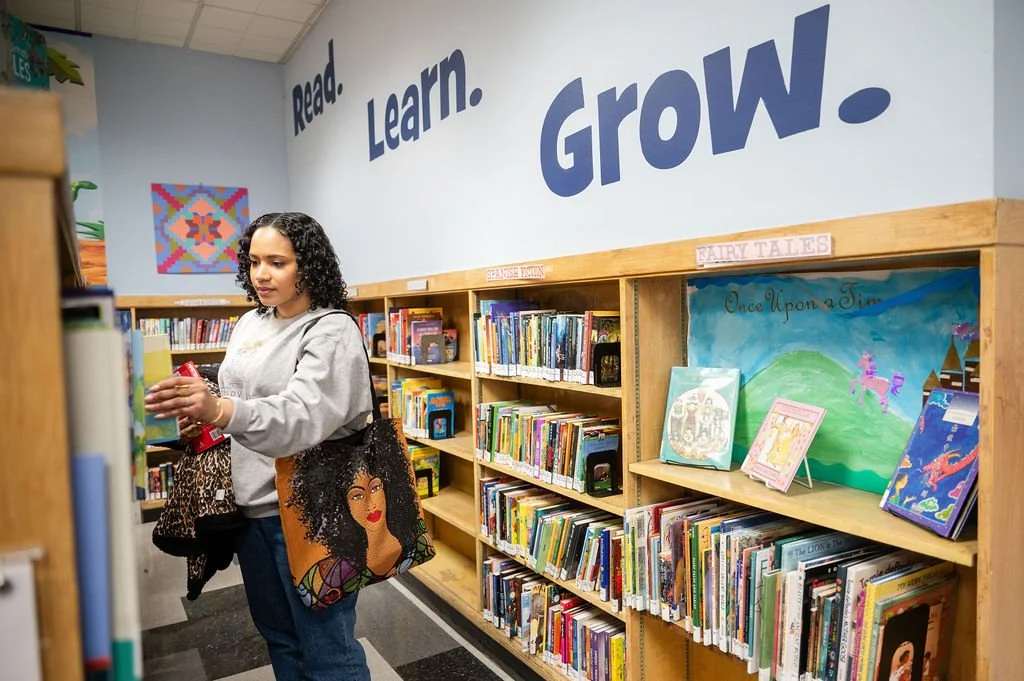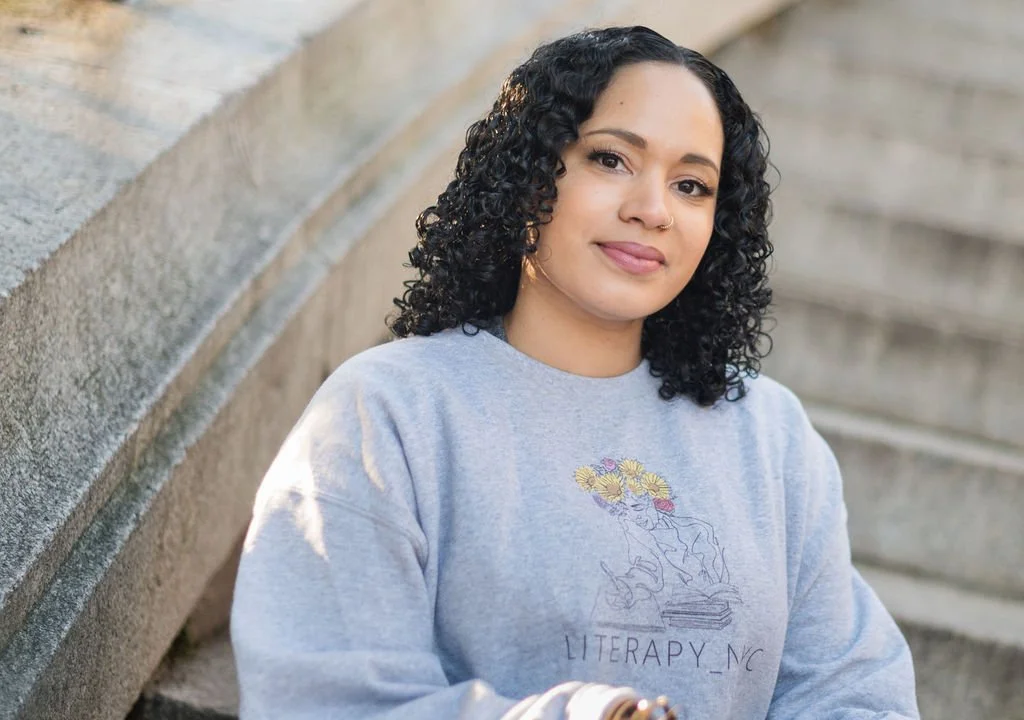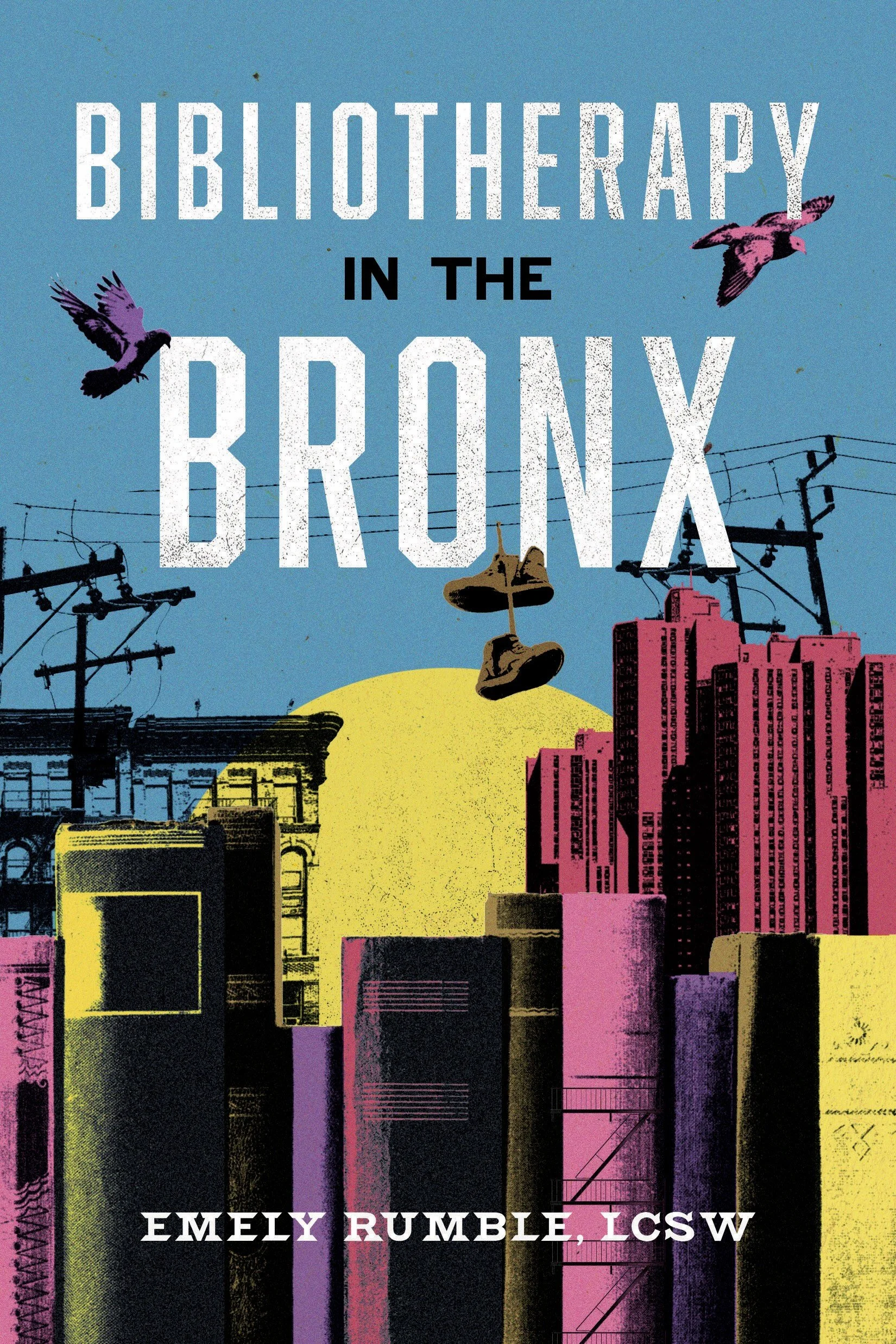‘Bibliotherapy’ and the Healing Power of Books
On a sweltering summer day, the Fordham Road section of the Bronx became a hub for bibliophiles. Highly acclaimed authors, publishing professionals, and book lovers convened at Fordham Plaza—a centrally located public space in the heart of the borough—for the eighth annual Bronx Book Festival.
Emely Rumble, LCSW, author of Bibliotherapy in the Bronx, sat on two appropriately titled panels: “The Bronx Is Healing,” which included Jessica Hoppe, author of First in the Family: A Story of Survival, Recovery, and the American Dream and “The Bronx Keeps Creating It”—a collective of Bronx-centered writers who discussed their debut books alongside how the borough influenced their craft.
Based on Rumble’s definition of bibliotherapy, “the use of literature to heal and teach new skills,” the festival provided a healing environment for panelists and attendees alike. The event’s location—along with the borough itself—is a main character in both Rumble’s personal and professional story.
“I really fought for that title, Bibliotherapy in the Bronx,” she says to Intervenxions. “That's so important because it's how I became a healer. It's who I am as a healer. I wouldn't be the healer that I am without the Bronx, and my clients and community in the Bronx.”
Rumble—a licensed clinical social worker, school social worker, and early childhood specialist—is undoubtedly a bibliotherapist, or “a psychotherapist specializing in the use of literature to heal.” She discovered the healing power of literature at an early age, exploring the pages of picture book Strega Nona in first grade (thanks to her teacher, Ms. Parkins) and later Antwone Fisher’s Finding Fish: A Memoir, which helped her navigate foster care as a teen. As a clinician, this modality has shaped her practice.
In Bibliotherapy in the Bronx, the author and psychotherapist takes readers on a journey through the history of bibliotherapy, introducing pioneering bibliotherpists like Sadie Peterson Delaney, a Black woman librarian and social worker, and Arleen McCarty Hynes, author of Biblio/Poetry Therapy - The Interactive Process: A Handbook, the medicinal power of various genres of literature implemented throughout many phases of life, and how the practice’s accessible nature makes it a community-centered, healing modality. This, of course, ties to Rumble’s personal connection to the work, which the case studies peppered throughout and bibliotherapeutic reflections at the end of each chapter reinforce. Divided into three parts, the book can serve as a guide for practitioners looking to incorporate books into their work with clients but, most importantly, speaks to the bibliotherapist in all readers.
Born in Meriden, Connecticut, Rumble, the daughter of teenage parents, grew up with her abuela, a healer, storyteller, and “social worker in the hood,” as she describes her. Her upbringing sparked several questions. As the only Latine family on her block, the African-American and Puerto Rican therapist was hyperaware of her family’s racial and ethnic identities. Additionally, Rumble’s maternal aunt, who babysat her, was diagnosed with paranoid schizophrenia, introducing her to mental illness at an early age.
The library was a place her aunt took her often. As Rumble details in this book, libraries are pillars in marginalized communities, offering literature, supportive services, and resources, as well as a safe space to convene.
“Books were really an anchor for me, emotionally, and provided me with not just psychological safety, but language to really make sense out of what I was seeing and feeling,” she says.
Rumble’s early experiences with her aunt prepared her for what some would describe as a challenging social work internship at a Bronx day treatment facility. She expounds on the experience in Bibliotherapy in the Bronx, noting how she led a poetry group at the facility where clients were able to express themselves and connect through creative writing.
That experience was one of several for the founder of LITERAPY that crystallized the healing power of literature and poetry. At 14, Rumble had a powerful moment of symbolic ceremonial bibliotherapy when she read a poem she wrote at her abuela’s funeral, inspired by her now ancestor’s favorite Bible verse, Psalm 23.
“La Biblia siempre lo tenía. The Bible in her bag all the time,” Rumble reflects. “I got to hear her conversations with other elders. I got to hear the oral stories and traditions being passed down. I got to understand who she was through the way that she related to other people and held space for other people's stories.”
The significance of storytelling and archiving is evident in Bibliotherapy in the Bronx. Rumble’s research led her to the Schomburg Center for Research in Black Culture in Harlem, where she reviewed the Sadie P. Delaney Papers. These eight bound volumes contain writings from notable individuals like poets Countee Cullen and Langston Hughes, as well as scholar and activist W.E.B. Du Bois, among others, and her family.
A mother of two young children, she connected deeply to one correspondence she unearthed in the archives.
“There was a telegram from her daughter, and it was on Mother's Day. But her mother was traveling,” Rumble recounts emotionally. “She was doing some work with the Library of Congress, so her daughter had sent her a telegram just saying, ‘Happy Mother's Day. I know that you're probably feeling maternal guilt today, but I just want you to know I don't feel any kind of way, Mom. I'm so proud of you.’”
This tender moment was transformative. “Talk about stories being medicine,” she continues. “I just felt like something locked into place after that.”
There is a clear connection between the work of bibliotherapists like Delaney, scholar Rudine Sims Bishop—whose essay “Mirrors, Windows, and Sliding Glass Doors” emphasizes the importance of diverse, culturally conscious books—and Rumble. Carrying on the centuries-old legacy of using literature and written and oral storytelling to heal, the author has left readers with a comprehensive blueprint—equipped with books, pioneers in the field, and strategies and tools for healing.
“I would like for people to read it, to develop their own practice, whether that's a personal reading practice, a clinical practice, or an educational practice within the classroom in their own style,” she says. “My hope is that, in writing the book, people will not just master the technique, but make it their own. That people will speak the names of the Black librarians and contributors to this field that are of the diaspora and diaspora traditions in this work. That we will build off the legacy of the work that's been done.”
In the Bronx, that legacy continues.








